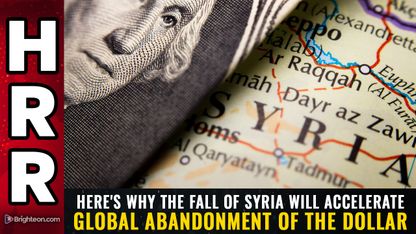
Merkel, who left the office on the same day, said non-vaccinated individuals are barred from non-essential stores, as well as cultural and recreational venues.
Germany's national lockdown for the unvaccinated is being implemented despite the latest data from the U.K. Health Security Agency (UKHSA), which showed that vaccinated people are at least four times more likely to die from COVID-19 than unvaccinated people.
According to the data, the vast majority of deaths occurred after people got their injections. "The situation in our country is serious," Merkel told reporters, claiming that the new measures are an act of national solidarity.
Germany's COVID deaths passed 100,000, according to figures from the Robert Koch Institute.
Vaccinated people will lose their vaccination status nine months after receiving their last dose. Merkel admitted that the situation is very serious and further measures must be taken. "The fourth wave must be broken and this has not yet been achieved," said Merkel. (Related: Economist calls for more freedom in Germany as extended lockdown keeps bankrupting businesses.)
The mandatory vaccination measure will take effect in February 2022.
Outgoing Health Minister Jens Spahn stressed the importance of the lockdown for the unvaccinated. "The important thing is that this is virtually a lockdown for the unvaccinated. The more than 12 million adults who aren’t inoculated is what is creating a challenge for the health system."
Gernot Marx, head of Germany's DIVI intensive-care medicine lobby, recently warned that the number of COVID patients in ICUs will reach 6,000 by Christmas, exceeding the peak during the second wave of the pandemic last winter.
Officials want to significantly expand the pool of people who can administer vaccines, including using qualified workers in drug stores and care facilities.
Austria enforces nationwide lockdown
Austrian Chancellor Alexander Schallenberg admitted the government has failed in convincing people to get vaccinated and a nationwide lockdown is needed to prevent the fifth wave of the virus.
Schallenberg also announced plans for mandatory COVID-19 vaccinations for its citizens. "We have not succeeded in convincing enough people to get vaccinated," Schallenberg said during a news conference. "It hurts that such measures still have to be taken."
The lockdown will last up to 20 days.
Under the new measure, non-essential shops will be closed and Austrians will be asked to work from home. Schools will remain open for those who need to go, but parents are encouraged to keep their children at home.
Austria has become the first country in the European Union to impose a full lockdown this winter. Officials initially placed millions of people who aren't fully vaccinated on lockdown, a measure that has now increased to the whole population regardless of vaccination status.
Schallenberg said the lockdown and vaccination requirement are needed to avoid a fifth wave, citing an increase of cases in the past week. The country has reported more than 10,000 new cases daily – a new record. "We do not want a fifth wave," Schallenberg said. "[Nor] do we want a sixth or seventh wave."
The chancellor has previously alleged that the country's COVID-19 vaccination rate is "shamefully low." According to government data, about 65 percent of Austria's population is vaccinated.
Police checks will be enforced and violators will face fines of up to 1,450 euros ($1,660). All interactions with the police will include checking people’s vaccination status. The move drew considerable condemnation online, with some commentators noting that it would severely limit freedom of movement for potentially millions of people.
"Every citizen, every person who lives in Austria must be aware that they can be checked by the police," Austrian Interior Minister Karl Nehammer told a news conference.
The government required its citizens to show an official COVID-19 pass proving that they have been vaccinated, recovered from COVID-19 or recently tested. The chancellor noted that the details still have to be finalized in the coming weeks.
A large percentage of the public in Austria is skeptical about COVID-19 vaccines. Demonstrations are expected in response to the new national lockdown and government plan to make vaccinations a requirement. The Freedom Party, the third biggest in parliament, has already expressed opposition to the restrictions.
Follow Pandemic.news for more news and information related to the coronavirus pandemic.
Sources include:
Please contact us for more information.























